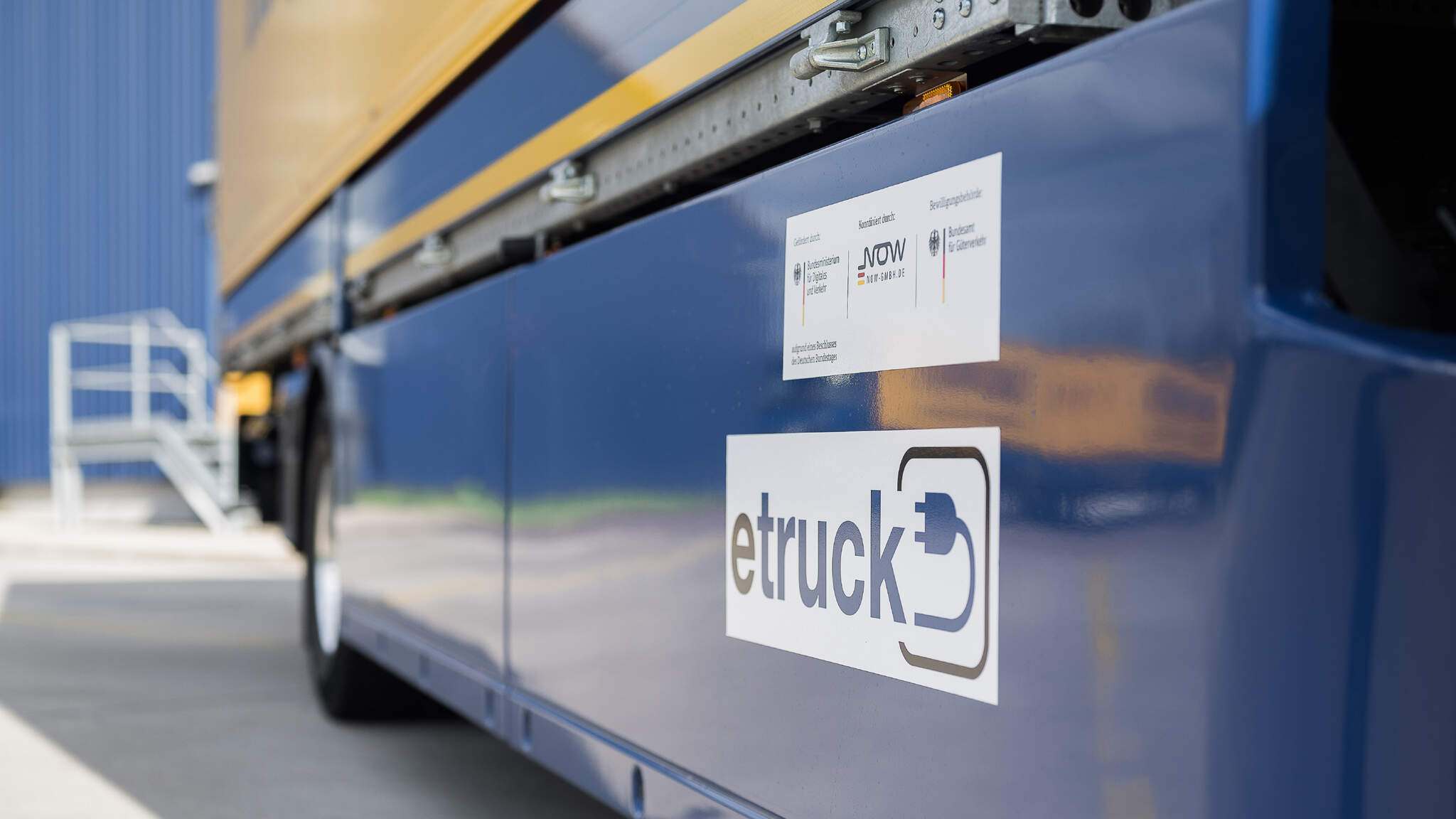Strides on a long road
Assuming a valuable role in mitigating climate change is both a central responsibility and a challenge for logistics providers. Transport and warehousing are energy-intensive and have a large carbon footprint; one reason is that zero-emission trucks are not yet available in sufficient numbers. But technological change is already in full swing. Michael Kriegel, Department Head DACHSER Chem Logistics, describes the potential that can be utilized and the role logistics can play in protecting the climate.

The chemical industry is central to Europe’s and Germany’s technological sovereignty. Almost all industries depend directly or indirectly on the chemical industry and its products, processes, and procedures, as it is the first link in many supply chains. In other words, future-proofing the chemical industry means future-proofing Europe and Germany as a business location.
It will require a great deal effort to enable this industry, which is responsible for about 5 percent of Germany’s CO2 emissions (according to calculations by the the German Chemical Industry Association VCI), to achieve the goal of net zero emissions by the year 2050 in accordance with the EU’s Green Deal. At the top of the agenda are the transition to green energy sources, increased use of renewable raw materials, and better product life cycle management. Also crucial are sustainable upstream and downstream processes, including logistics in particular.
Making growth climate-friendly
Transformation at any cost, for example by paring back fundamental logistics services, is not an option. On the contrary, the number of road, rail, air, and sea transports is expected to rise. This means that it is vital to exploit the technologies available so as to increasingly reduce logistics services’ climate impact and in this way optimize customers’ logistics balance sheets with regard to their own sustainability goals.
Future-proofing the chemical industry means future-proofing Europe and Germany as a business location.
Offering “climate-neutral” logistics through carbon trading is certainly not a sustainable long-term solution. It helps neither the climate nor energy- and emissions-intensive companies. What matters is that emissions actually be avoided and reduced, even if this is a much more arduous and laborious path. Once all possibilities to reduce emissions by technical means have been exhausted, projects to compensate for greenhouse gas emissions are justified. These projects, however, need to be carefully evaluated on the basis of established standards of quality and, ideally, one’s own assessment.
Active commitment to more sustainability pays off and is reflected in the rankings on rating platforms such as the Carbon Disclosure Project (CDP) and EcoVadis, which are also used by customers from the chemical industry. Site assessments under the terms of the Safety & Quality Assessment for Sustainability (SQAS) play an important role for the chemical industry. Such assessments can verify that work processes are continuously being improved to protect employees, the population, and the environment.
For logistics providers, four fields of action are key to becoming more sustainable: process efficiency, energy efficiency, research and innovation, and social commitment beyond the company.
- From a customer as well as a service provider perspective, continuously increasing the efficiency of logistics processes—for example, through the use of artificial intelligence or internet of things applications—is an important lever for reducing greenhouse gas emissions. Other effective tools for optimizing process efficiency are maximum truck capacity utilization, such as through the use of mega trailers and longer trucks, intentional avoidance of empty-truck kilometers, and the deliberate use of multimodal transportation in combined transport.
- Wherever possible, priority should be given to energy efficiency and the use of renewables. For example, all DACHSER logistics facilities worldwide run completely on green power. At the same time, the company is expediting investment in PV systems installed on its own buildings. LED lighting, battery-powered ground conveyors, and low energy consumption through heat recovery also go a long way toward meeting efficiency goals. Electric trucks and cargo bikes are already used as standard for zero-emission deliveries of all non-chilled shipments in precisely defined city-center areas. By the end of 2025, DACHSER will have implemented this concept in 24 major European cities.
- The third field of action, research and innovation, focuses on preparing the zero-emission logistics of the future. At three e-mobility locations in Germany, zero-emission vehicles in short- and long-distance transport as well as charging infrastructures are being tested. Since efficiency also reduces emissions, digitalization and AI-supported process optimization play an important role as well. The DACHSER Enterprise Lab was launched for this purpose with the help of Fraunhofer IML. It focuses on innovations that make the flow of goods and the associated processes more digital, more efficient, and more sustainable.
- After all, social activities beyond the company’s business-related and geographical sphere of influence also play a role in making a company sustainable. In this fourth field of action, DACHSER focuses on its collaboration with children’s aid organization terre des hommes. The protection of natural resources takes center stage in these projects. Besides actually helping children, this protection is especially important in developing and emerging countries, as they are strongly affected by the effects of climate change.
To recap, a logistics provider can do its part to promote sustainability and mitigate climate change in these four key fields of action. However, the road ahead is still long. For example, as things stand today, it is expected to take another 15 to 20 years before all diesel trucks on the road have been replaced. Climate action therefore requires a lot of staying power and, above all, a joint effort from all market participants: customers, logistics providers, transport partners, and carriers.